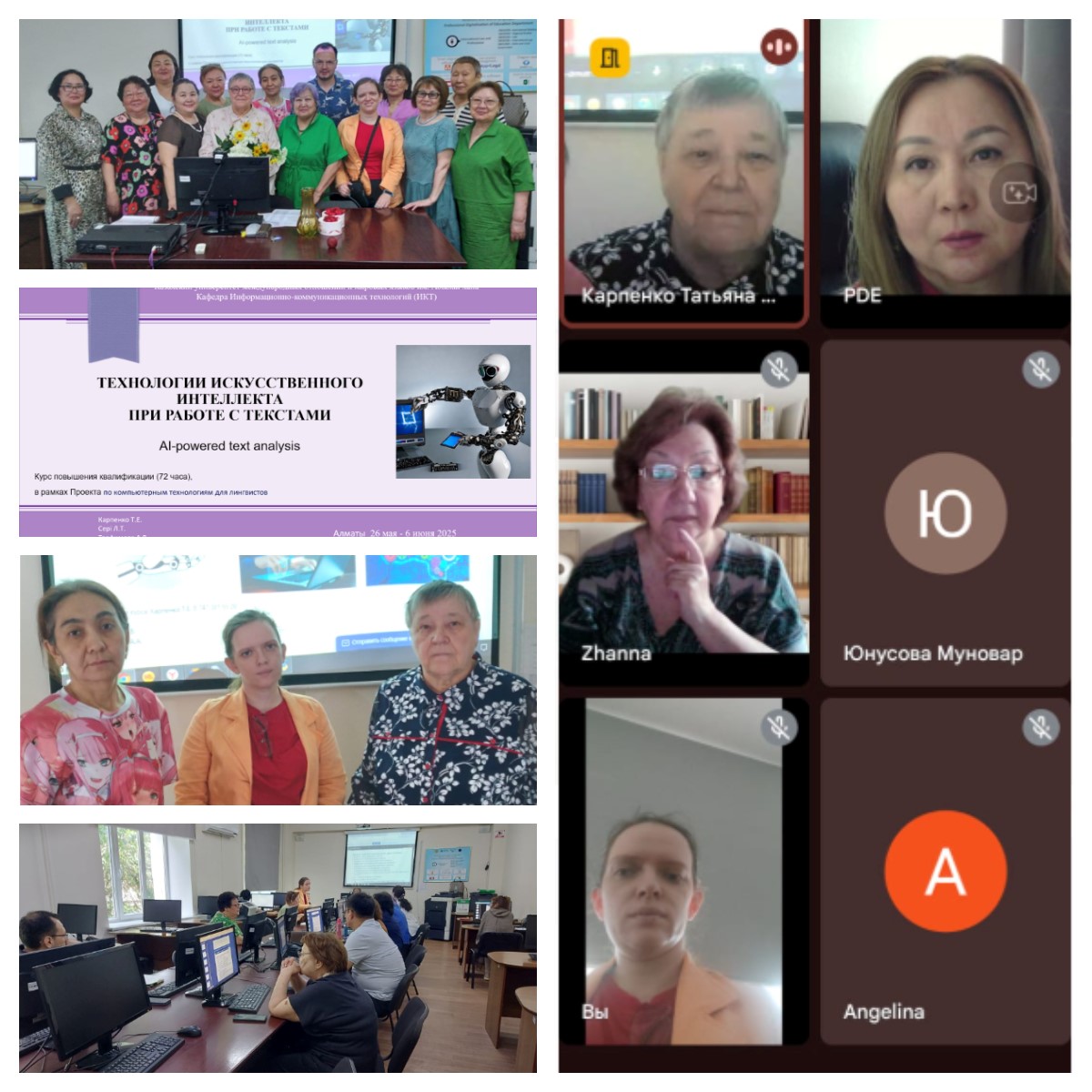From May 26 to June 6, 2025, the Kazakh Ablai Khan University of International Relations and World Languages (Almaty) successfully hosted a professional development course titled "Artificial Intelligence Technologies in Working with Texts" (72 hours). Organized by the Department of Information and Communication Technologies, the course became part of a university-wide initiative aimed at integrating digital and intelligent technologies into the field of humanities education.

Course Objective
The goal of the course was to enhance the digital competencies of linguistics and philology instructors, introduce them to artificial intelligence (AI) methods, automated text analysis, and modern tools in computational linguistics.
A total of 55 course participants took part in the training: 20 in offline format and 35 online via Google Meet. The course was structured on the Moodle platform and included lectures, hands-on practical sessions, independent work, and final project presentations. Course materials were supplemented with seminar presentations, slide screenshots, and excerpts from student projects.
Course Program included:
- Introduction to and application of modern AI-powered platforms for text analysis (e.g., Voyant Tools);
- Use and debugging of Python code in two development environments — IDLE Python and Google Colab Python;
- Learning to use AI and Python to extract numerical indicators and generate visualizations from English and Russian texts;
- Familiarization with methods such as named entity recognition (NER), topic modeling, sentiment analysis, and more;
- Application of AI tools for linguistic processing and interpretation of literary and media texts;
- Working with large text corpora.
In the final stage, participants presented projects in the following areas:
- Linguostylistic (supervised by T.E. Karpenko)
- Linguotranslational (supervised by L.T. Seri)
- Linguomedia (supervised by A.V. Trofimova)
- Historical and cultural (supervised by A.A. Anuarbekova)
Participant Feedback (27 responses) showed high praise for the course. Summary of feedback:
- Positive feedback on structure and relevance: Most participants appreciated the well-thought-out course structure, logical organization, and the high professionalism of instructors.
- High practical value: Many noted that the knowledge gained could be applied in teaching, translation, research, and methodology work.
- Course difficulty: Some participants found the course challenging due to the amount of new information, language barrier (English), and the need to work with Python.
- Suggestions for improvement: Adapt the course for philologists, increase the time allocated for practical sessions, and consider offering more offline classes for better comprehension.
Selected Quotes from Participants:
“Artificial intelligence is not just a technology – it is also an art. This course was a real journey into the future of technology!”
“The course is valuable, but difficult for linguists without programming skills.”
“The course inspires confidence in using AI in linguistics! The structure is thoughtful, topics are up-to-date, and the instructors were supportive at every stage. I would appreciate more practice and step-by-step explanations for beginners. Thank you for the rich learning experience and motivation to keep going!”
Conclusion. This course served as a solid foundation for the professional development of humanities instructors seeking to integrate AI technologies into teaching, research, and project-based work. It provided participants not only with technical skills but also with confidence in using digital tools, and broadened their understanding of the possibilities AI offers in the humanities.
Course Organizers: Karpenko T.E., Trofimova A.V., Seri L.T., Anuarbekova A.A.